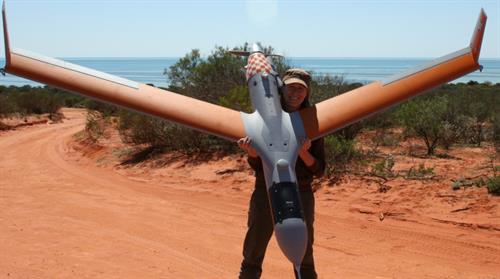.jpg?sfvrsn=69603e47_3)
Artificial intelligence technology from Google has revolutionised the way a Murdoch University dugong researcher finds and studies the gentle marine mammals.
For the last decade, Dr Amanda Hodgson has been using a high end military drone, called the ScanEagle, to generate aerial images in trial surveys of the Shark Bay region in Western Australia – one of the areas where the critically endangered dugong, or sea cow, can be found.
But manually going through each of the 37,000 drone images generated to detect dugongs has been labour intensive and time consuming. So Dr Hodgson collaborated with her colleague Dr Frederic Maire from the Queensland University of Technology to find an automated solution.
“To help conserve dugongs, we need to understand where their important habitat areas are so we can push for their protection. We also need to gain an understanding of whether their numbers are increasing or decreasing,” Dr Hodgson said.
“Google’s machine learning package helped Frederic develop a learning computer algorithm that is saving us time and money in detecting the dugongs in the surveys.
“We estimated it would take 377 hours to go over each of the images manually. But this technology is helping us to do it with a decent degree of accuracy in just 18 hours of verification work.”
Algorithm
The AI detector picks out anything in the images it thinks looks like a dugong, and then a human goes through potential detections to pick out the mammals.
The research team used both true and false detections to continue to train the algorithm, so that it correctly identified 71 per cent of dugongs in the images.
Dr Hodgson and Dr Maire are continuing to work on the technology to improve its accuracy before embarking on a full survey of Shark Bay.
They have high hopes their drone survey methods and the improved AI will provide researchers around the world, including in developing countries, the opportunity to conduct surveys without the need for specialist expertise or expensive planes.
“As we refine this technology, it will help us fill in huge gaps in our knowledge about the status of dugongs and other species around the world,” Dr Hodgson said.
She presented her work at Google Australia in Sydney recently at a special event showcasing the applications of Google’s machine learning technology to journalists.
